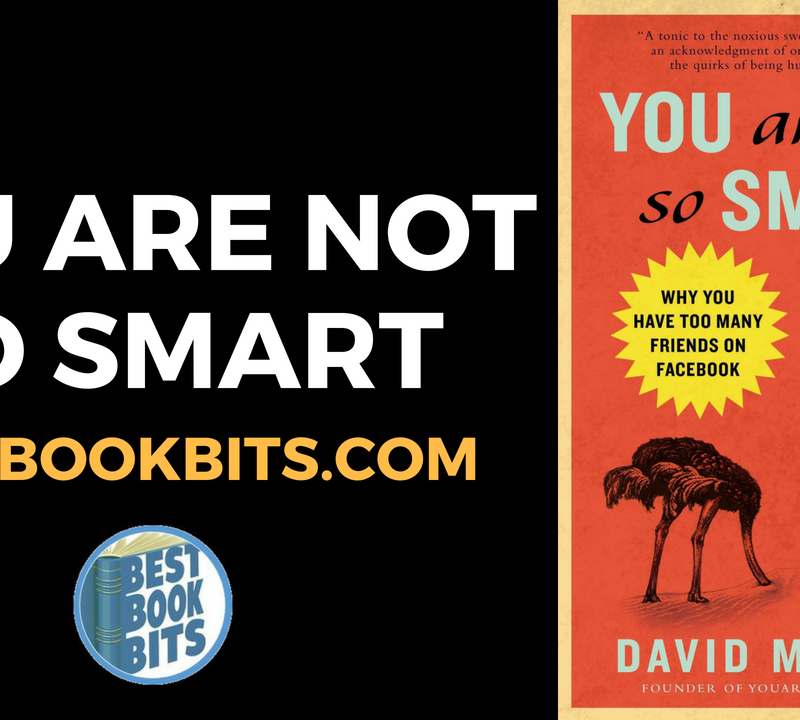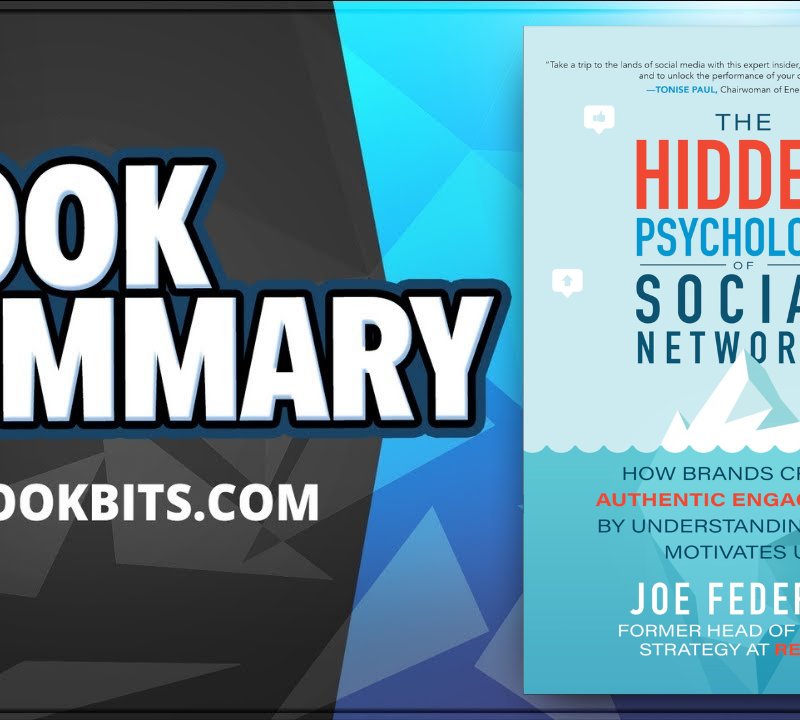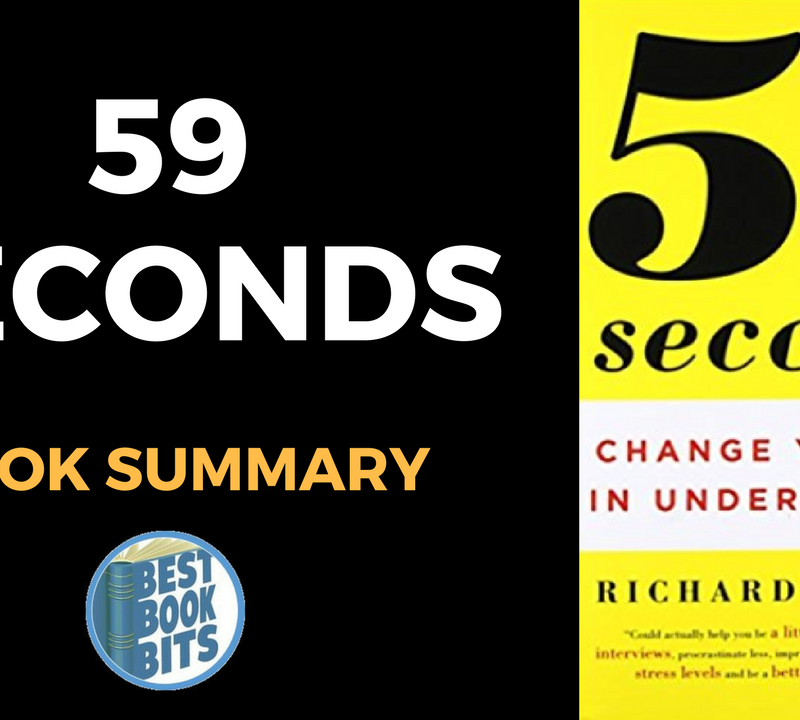★DOWNLOAD THIS FREE PDF SUMMARY HERE https://go.bestbookbits.com/freepdf
? MY FREE BOOK TO LIVING YOUR DREAM LIFE” https://go.bestbookbits.com/first-seven-steps
? SPONSOR BESTBOOKBITS BY USING PATREON https://www.patreon.com/bestbookbits
? SUPPORT BESTBOOKBITS BY CLICKING THE LINKS BELOW
150 PDF Summaries: https://go.bestbookbits.com/150
Coaching Program: https://go.bestbookbits.com/coaching
Subscribe to My Channel: https://www.youtube.com/bestbookbits?sub_confirmation=1
Website: https://bestbookbits.com
Instagram: https://www.instagram.com/bestbookbits
Spotify: https://open.spotify.com/show/0q8OW3dNrLISzyRSEovTBy
Facebook: https://www.facebook.com/michaelbestbookbits
Book Club: https://bestbookbits.com/bookclub/
Mailing List: https://mailchi.mp/d1dfc1907cdb/bestbookbits
Fooled by Randomness by Nassim Nicholas Taleb
The Book in Three Sentences
Randomness, chance, and luck influence our lives and our work more than we realize. Because of hindsight bias and survivorship bias, in particular, we tend to forget the many who fail, remember the few who succeed, and then create reasons and patterns for their success even though it was largely random. Mild success can be explainable by skills and hard work, but wild success is usually attributable to variance and luck.
- According to Taleb, the book’s most popular chapter was Chapter 11, the one in which he compressed all the literature on the topic of miscalculating probability.
- Important point: “it’s more random than we think, not it is all random.” Chance favors preparedness, but it is not caused by preparedness (same for hard work, skills, etc.)
- “This business of journalism is just about entertainment, particularly when it comes to radio and television.”
- As much as we want to “keep it simple, stupid” … It is precisely the simplification of issues that are actually very complex, which can be dangerous.
- “Things that happen with little help from luck are more resistant to randomness.”
- “Mild success can be explainable by skills and labor. Wild success is attributable to variance.”
- One common theory for why people pursue leadership is because of “social emotions” which cause others to be influenced by a person due to small, almost imperceptible physical signals like charisma, gestures, and gait.
- This has also been shown via evolutionary psychology: when you perform well in life, you get all “puffed up” in the way you carry yourself, the bounce in your step, etc. From an evolution standpoint this is great because it becomes easier to spot the most successful / desirable mate.
- The concept of alternative histories is particularly interesting. If you were to relive a set of events 1000 times, what would the range of outcomes be? If there is very little variance in your alternative histories (i.e. You chose to become a dentist and you will probably make more or less the same amount of money and live a similar lifestyle all 1000 times), then you are in a relatively non- random situation. Meanwhile, if there is a very wide range of normal results when considering 1,000 variations (entrepreneurs, traders, etc.), then it is a very random situation.
- The quality of a choice cannot be judged just by the result. (I first learned this in baseball. Just because a pitch you call or play you call doesn’t work out doesn’t make it a poor choice. It could have been the right call, but bad luck. Or vice versa.)
- “Certainty is something that is likely to take place across the highest number of different alternative histories. Uncertainty concerns events that should take place in the lowest number of them.”
- You should think carefully about getting more insurance / shielding yourself from events that — although unlikely — could be catastrophic. You essentially want to insulate yourself from terrible random accidents.
- We have a tendency to see risks against specific things as more likely than general risks (dying in a terrorist attack while traveling vs. dying on your next trip, even though the second includes the first). We seem to overvalue the things that trigger an emotional response and undervalue the things that aren’t as emotional.
- We are so mentally wired to overvalue the sensational stories that you can “realize informational gains by dispensing with the news.”
- Fascinating famous Swiss study of the amnesia patient who couldn’t remember doctor’s name but did remember him pricking her hand with a pin.
- “Every man believes that he is quite different.”
- It’s better to value old, distilled thoughts than “new thinking” because for an idea to last so long it must be good. That is, old ideas have had to stand the test of time. New ideas have not. Some new ideas will end up lasting, but most will not.
- The ratio of undistilled information to distilled is rising. Let’s call information that has never had to prove its truth more than once or twice, undistilled. And information that has been filtered through many years, counter arguments, and situations is distilled. You want more distilled information (concepts that stand the test of time and rigorous analysis) and less undistilled information (the news, reactionary opinions, and “cutting edge” research).
- There is nothing wrong with losing. The problem is losing more than you plan to lose. You need clear rules that limit your downside. (“If any investment loses one million dollars then our firm sells immediately.”)
- Much of what is randomness is timing. The best strategy for a given time period is often not the best strategy overall. In any given cycle, certain places will be dangerous, certain trading strategies will be fruitful, etc.
- If you find yourself doing something extraordinarily well in a random situation, then keep doing what’s working but limit your downside. There is nothing wrong with benefitting from randomness so long as you protect yourself from negative random events.
- Randomness means there are some strategies that work well for any given cycle (an extreme fad diet), but these cycles are often short to medium term successes. More importantly, the strategies that work for a given cycle in the short term may not be the best for long run. They are sub optimal strategies winning over a randomly beneficial short term cycle. The same can said for setting huge goals, following a fad diet, chasing an extreme training protocol, and so on. Unsustainable and suboptimal for the long term. In this way, evolutionary traits that are undesirable can survive for a period of time in any given population. That is, suboptimal strategies and traits can seem desirable in the short run even though they will be resoundingly defeated in the long run.
- Important point: you can never affirm a statement, merely confirm its rejection. There is a big difference between “this has never happened” and “this will ever happen.” You can say the first, but never truly confirm the second. It just takes one counter example to prove all previous observations wrong. We never know things for sure, only with varying degrees of certainty.
- There are only two types of ideas. Those that have been proven wrong and those which have yet to be proved wrong. (Feynman said something similar.)
- Strive to become a man of leisure who can afford to sit with ideas, think properly about them, and gradually provide something of value.
- Science is speculation. This is important to remember. Scientists are simply creating well-formed and well-educated conjectures about the world. But they are still conjectures that can be proved incorrect by one random event.
- It’s a difficult standard to demand that you can actually implement ideas and not merely share them (there have been many brilliant philosophers and scientists who have had great ideas they didn’t personally use), but is an idea really that great if you can stick to it? Obviously, everyone has different skills and circumstances, so maybe someone can use your idea even if you can’t. But generally speaking, I think you should be able to live out the ideas you share.
- Pascal: “the optimal strategy for humans is to believe in the existence of God. For, if God exists, then the believer will be rewarded. If God does not exist, the believer will have nothing to lose.”
My first thought: “yes, but what if you believe in the ‘wrong’ God?” Should you play a numbers game and believe in the God most people believe in? Or, can we safely assume that of the infinite number of possible Gods humans could have designed it is unlikely that any of the ones we worship are actually the God? So, just believe that a higher power exists? Whew. Tough call here. - Social treadmill effect: you get rich, move to a better neighborhood, surround yourself with more successful people, and feel poor again.
- “Remember that nobody accepts randomness in his own success, only his failure.”
- Skewness and expectations: you can’t just look at the odds of something happening, but also the payoff you receive if it works (and the cost of it failing). A bet on something very unlikely can be smart if the payoff is large and you have rules to limit the many small losses that are likely.
- Minor stalemates in life can often be solved by choosing randomly. In many cases it doesn’t really matter so long as you choose something and move forward.
- We follow rules not because they are the best options, but because they make things fast and easy.
- Humans are inherently flawed. The cognitive biases that we have are simply a result of how our brains work. Sometimes these biases help us rather than hurt us. But they are always a result of how we are built. That makes them particularly difficult to avoid.
- We seem to focus too much on “local” changes, not global ones. That is, we care too much about the latest change rather than the overall trend.
- “Wealth does not make people happy, but positive increases in wealth may.”
- We do not think, but use heuristics to make decisions.
- Emotions are “lubricants of reason.” We actually need to feel things to make decisions.
- Emotions give us energy and they are actually critical to life in the day-to-day world. In other words, the goal here is not to become a robot who can analyze everything with perfect logic.
- Even if you know about randomness and cognitive biases, you are still just as likely to fall victim to them.
- How to overcome these biases? We need tricks. We are just animals and we need to re-structure our environment to control our emotions in a smart way.
- “Most of us know pretty much how we should behave. It is the execution that is the problem, not the absence of knowledge.”
- “I try to remind my group each week that we are all idiots and know nothing, but we have the good fortune of knowing it.”
- Do not blame others for your failures. Even if they are at fault.
- The only aspect of your life that fortune does not have control over is your behavior.
- Repetitiveness is key for determining if you are seeing skill or randomness at play. Can’t repeat it? Not skillful.
- “We favor the visible, the embedded, the personal, the narrated, and the tangible. We scorn the abstract. Everything good — aesthetics, ethics — and wrong — fooled by randomness — with us seems to flow from it.”
★DOWNLOAD THIS FREE PDF SUMMARY HERE https://go.bestbookbits.com/freepdf
? MY FREE BOOK TO LIVING YOUR DREAM LIFE” https://go.bestbookbits.com/first-seven-steps
? SPONSOR BESTBOOKBITS BY USING PATREON https://www.patreon.com/bestbookbits
? SUPPORT BESTBOOKBITS BY CLICKING THE LINKS BELOW
150 PDF Summaries: https://go.bestbookbits.com/150
Coaching Program: https://go.bestbookbits.com/coaching
Subscribe to My Channel: https://www.youtube.com/bestbookbits?sub_confirmation=1
Website: https://bestbookbits.com
Instagram: https://www.instagram.com/bestbookbits
Spotify: https://open.spotify.com/show/0q8OW3dNrLISzyRSEovTBy
Facebook: https://www.facebook.com/michaelbestbookbits
Book Club: https://bestbookbits.com/bookclub/
Mailing List: https://mailchi.mp/d1dfc1907cdb/bestbookbits













